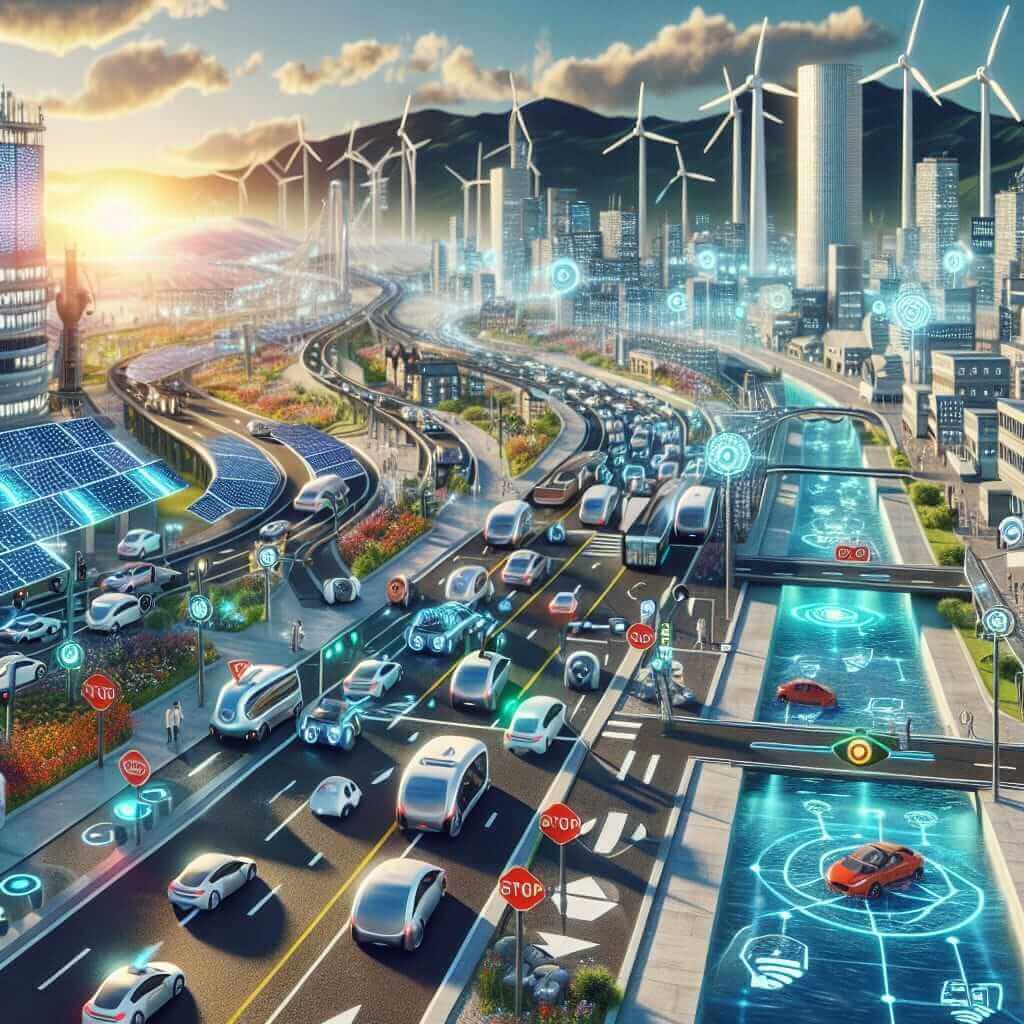The IELTS Reading section assesses a candidate’s ability to understand and interpret written English. In recent years, topics related to technology and urban development, such as “smart cities,” have gained prominence. This article will explore the impacts of the rise of smart cities on traditional infrastructure, framed as an IELTS Reading practice passage. By focusing on a timely and relevant subject, we aim to provide a comprehensive understanding that can aid in exam preparation.
Reading Passage
The Rise of Smart Cities and Their Impact on Traditional Infrastructure
Over the past few years, the concept of “smart cities” has evolved from a futuristic idea to a tangible reality. Smart cities leverage technology and data to enhance the efficiency of urban services, improve the quality of life for residents, and promote sustainable development. However, the advent of smart cities also brings significant challenges and impacts for traditional infrastructure.
One of the most substantial impacts is on transportation systems. Smart transportation networks utilize data from various sources, including traffic cameras, GPS devices, and social media, to manage traffic flow more effectively. This results in reduced congestion, lower emissions, and improved public transit services. Traditional infrastructure, on the other hand, often struggles to adapt to these rapid changes due to its rigidity and outdated technology.
Another area affected by smart city initiatives is energy management. Smart grids enable real-time monitoring and distribution of electricity, thus optimizing energy usage and reducing wastage. This is a stark contrast to conventional power grids, which are less flexible and more prone to inefficiencies. The integration of renewable energy sources into smart grids further underscores the shift from traditional to more advanced, sustainable infrastructure.
Public safety also benefits from smart city technology through advanced surveillance systems, emergency response optimization, and predictive analytics. These innovations can significantly reduce crime rates and enhance the overall safety of urban areas. Traditional infrastructure, while functional, lacks the sophistication and real-time capabilities of smart technologies.
Despite the advantages, the transition to smart cities is fraught with challenges. One significant issue is the cost of upgrading existing infrastructure. Implementing smart technology often requires substantial financial investment, which can be a barrier for many cities. Moreover, there are concerns about privacy and data security, as the increased use of sensors and data collection raises the risk of cyber threats.
In conclusion, the rise of smart cities marks a significant shift in urban development. While these advancements offer numerous benefits, they also pose challenges for traditional infrastructure. Balancing innovation with practicality and affordability is crucial for the successful integration of smart technologies in urban environments.
Questions
Multiple Choice
-
What is one of the primary benefits of smart transportation networks?
a) Increased construction of new roads
b) Reduced traffic congestion
c) Lower public transport fares
d) Enhanced car manufacturing -
How do smart grids differ from traditional power grids?
a) They are less prone to inefficiencies
b) They are cheaper to maintain
c) They are independent of renewable energy sources
d) They provide less reliable service
True/False/Not Given
- Smart cities have completely replaced traditional infrastructure in most modern cities.
- The integration of smart technologies can pose privacy and data security risks.
- Smart city initiatives require minimal financial investment.
Sentence Completion
- Smart transportation networks result in __.
- The integration of renewable energy sources into smart grids highlights __.
Matching Information
- Match the following impacts with their corresponding traditional infrastructure challenges:
- Transportation (i) Rigidity and outdated technology
- Energy Management (ii) Less flexibility, prone to inefficiencies
- Public Safety (iii) Lack of real-time capabilities
Answer Keys
Multiple Choice
- b) Reduced traffic congestion
- a) They are less prone to inefficiencies
True/False/Not Given
- False
- True
- False
Sentence Completion
- reduced congestion, lower emissions, and improved public transit services
- the shift from traditional to more advanced, sustainable infrastructure
Matching Information
-
- Transportation (i) Rigidity and outdated technology
- Energy Management (ii) Less flexibility, prone to inefficiencies
- Public Safety (iii) Lack of real-time capabilities
Common Mistakes
When tackling reading passages on topics like smart cities, students often:
- Misinterpret the main idea due to unfamiliarity with technical terms.
- Skim over critical information, leading to incorrect answers.
- Confuse headings and subheadings in Matching Information questions.
- Fail to recognize the implicit meaning in sentence completion tasks.

Vocabulary
- Leverage (v): /ˈlɛvərɪdʒ/ – make use of (a resource) to maximum advantage.
- Efficiency (n): /ɪˈfɪʃənsi/ – the state or quality of being efficient; achieving maximum productivity with minimum wasted effort or expense.
- Congestion (n): /kənˈdʒɛstʃən/ – the state of being congested, typically with traffic.
- Grid (n): /ɡrɪd/ – a network of lines that cross each other to form a series of squares or rectangles, typically used in the context of electrical supply.
Grammar Focus
Relative Clauses
Relative clauses are used to give additional information about a noun without starting a new sentence.
- Which: Used for things (e.g., “Smart grids, which enable real-time monitoring…”).
- That: Used for people and things (e.g., “technology that improves quality of life…”).
Example: “The transportation systems, which were constructed decades ago, struggle to adapt.”
Tips for High IELTS Reading Scores
- Understand the question types: Familiarize yourself with the different question formats used in the IELTS Reading section.
- Skim and scan: Develop the ability to quickly locate information and understand its context.
- Practice regularly: Consistent practice with various topics will sharpen your reading skills.
- Learn vocabulary: Expanding your vocabulary will help you comprehend reading passages more effectively.
- Time management: Practice completing reading sections within the allotted 60 minutes.
By focusing on these strategies and analyzing high-quality reading materials, you can enhance your reading skills and perform better on the IELTS exam.